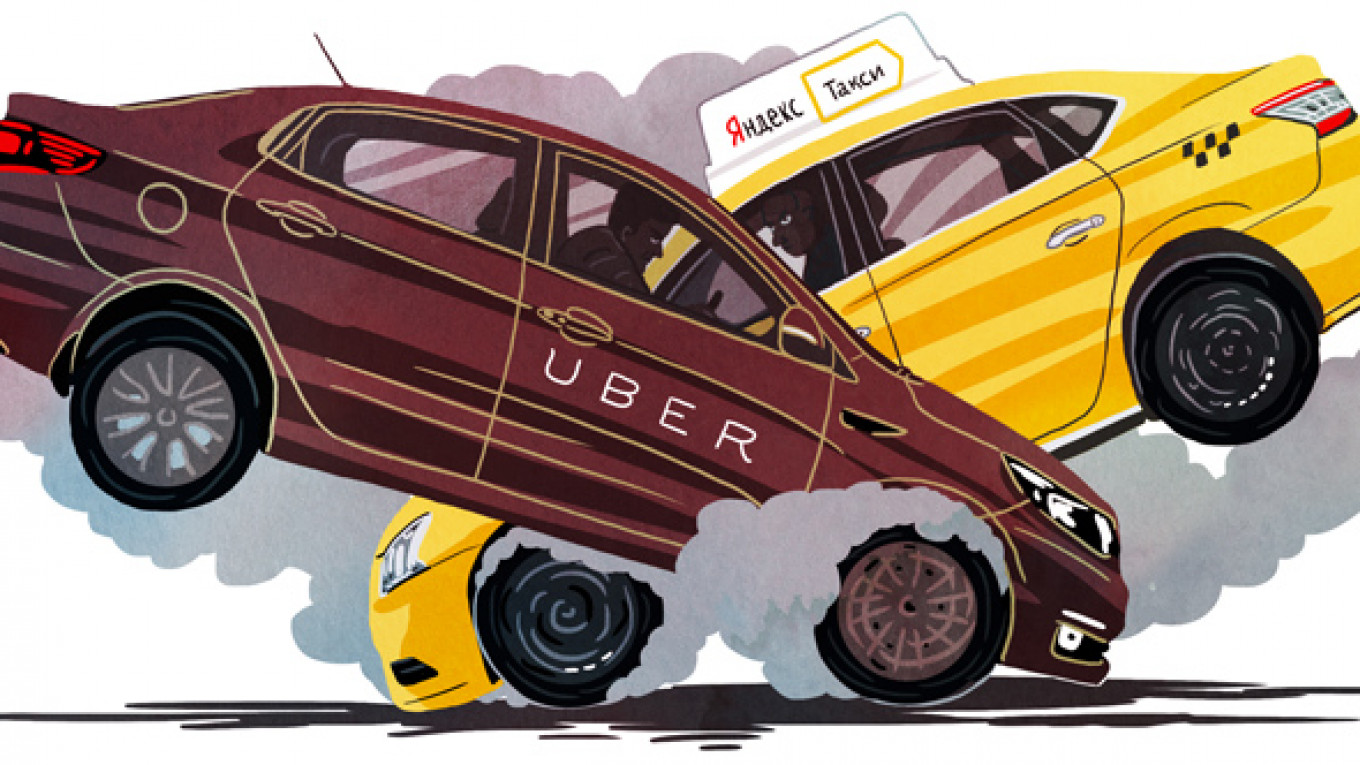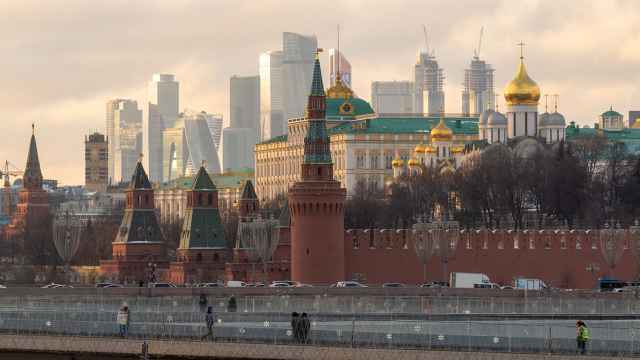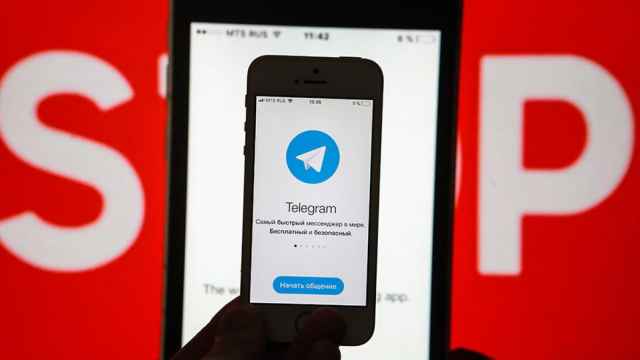"3,200 rubles to the center," says a stocky, middle-aged man in Moscow's Sheremetyevo Airport, quoting a taxi fare equal to about one-and-a-half times the average Muscovite's daily wage. He pauses to register amazement on the face of his potential ride. "Alright, alright," he says. "Special offer then, just for you: 3,000 and you're done."
Souk-style bargaining is still par for the course at most Russian airport arrivals halls, with few bargains on offer. But elsewhere in the country, technology is king. Today, three big taxi smartphone applications are battling for position in a large and growing taxi market, worth an estimated $8.5 billion per year. It is unclear which of Israel's Gett, Russia's Yandex.Taxi, and California-based upstart Uber will eventually win out.
In late April, Uber made its latest move to capture more Russian customers by undercutting its rivals significantly. It announced that trips to and from Moscow airports would begin at a fixed rate of only 700 rubles ($11), up to a third lower than the competition.
Since entering Russia in 2013 with just a few cars signed up to its service, Uber has expanded rapidly. In April alone, it entered two new Russian cities, Ufa and Nizhny Novgorod, taking the total to 10. It aims to cover some 40 major Russian cities in the near future.
Valued at some $60 billion, Uber has been accused of using its massive financial advantage to crush the competition. When it arrives in a new market, it lures drivers to its platform with bonus paychecks and minimal commissions. Since beginning in 2010, Uber has entered a new city every five-and-a-bit days and reportedly run up losses of hundreds of millions of dollars. Its billionaire investors foot the bill without batting an eye, banking on future profits once the company has conquered the world.
Russia appears to be no exception. Two days after the airport price cut, Uber announced that over the long Russian May holidays, fares in the popular Black Sea resort of Sochi would fall by up to 25 percent.
Yet Uber in Russia is still trailing the competition, and by some distance. Its biggest rival is Yandex.Taxi, an offshoot of one of Russia's biggest tech companies. Yandex got into the taxi app revolution early, launching in 2011. Like Uber, it offers safe, clean, modern cars — no chance of riding in a beat-up Lada. It now has 40,000 drivers in 17 Russian cities, and boasts more than half a million users each month. Gett, which also quickly expanded into Russia, lags only slightly behind with some 36,000 registered drivers.
Uber refuses to reveal data on its drivers or finances, but a year ago it had only one-fifth of Yandex's fleet. Dmitry Izmailov, Uber's chief in Russia, would say only that the company is witnessing "very rapid growth."
So far, Yandex is matching Uber's aggression with its own. "We don't plan on giving up," says Tigran Khudaverdyan, Yandex.Taxi's chief executive. Khudaverdyan suggested his company was "perhaps even more aggressive" than Uber.
Uber and Yandex.Taxi offer a minimum fare price of 99 rubles ($1.50) for short trips. But Uber undercuts on longer journeys. It takes 8 rubles ($0.12) for each minute and each kilometer in Moscow on longer routes, compared to Yandex's 9-ruble charge.
Yandex.Taxi claims to offer better quality service, but that pricing policy has helped Uber improve its position in the Russian capital. It now has orders and drivers in droves. "Uber's are definitely the lowest rates," says Mikhail, a gold-toothed Uber driver originally from Ukraine. "But the biggest plus is that you always get orders." The longest Mikhail has ever had to wait between Uber orders is 35 minutes. In the city center, ride requests arrive much faster.
That is a far cry from five years ago, when taxi drivers would often wait hours between fares. "A taxi in Moscow would take no less than 30-40 minutes to reach you and the ride would cost at least 500 or 600 rubles," says Bogdan Konoshenko, a cab company director and member of Moscow's chamber of commerce.
Despite some protest, Russian authorities have proved surprisingly open to Yandex, Uber and similar taxi newcomers. One reason for this is the disorganization of potential opposition. Unlike in Europe, Moscow has no taxi lobby that traces its history to the era of the horse-drawn carriage driver. It has nothing like London's "The Knowledge," in which cabbies memorized city maps for years to gain admission to the trade.
In Moscow the best way to hail a taxi was to stick out a thumb and haggle a fee with a driver who might not even have a driving license. It is hardly surprising that ordinary Russians have taken to the new technology in such numbers.
The arrival of apps has also prompted a taxi industry boom by increasing efficiency. Average call-out times in Moscow are now around five minutes, giving drivers more productive hours. According to government research published in March, the average Moscow taxi driver brings in 7,300 rubles ($110) per day — a respectable income by Moscow standards.
Meanwhile, a constellation of smaller companies has popped up to use the application architecture, offering vehicles and drivers for hire. The taxi market has grown by 85 percent in the five years since Yandex.Taxi pioneered its app, the government research found. There are one-fifth more vehicles giving rides, and the number of taxi companies has doubled.
Moscow authorities fired a warning shot over Uber's bows earlier this year, threatening to ban the service if it did not employ only drivers with taxi licenses and share with City Hall the details of routes traveled. Other services had already agreed to the regulations. Employing licensed drivers is something Yandex.Taxi says sets its service apart from Uber. Under pressure, Uber agreed to the new rules.
But both companies say their relations with Russian authorities are generally smooth. It seems to be accepted wisdom that the new industry will be dominated by applications. "Those who don't work with apps are disappearing from the market," says Konoshenko.
Meanwhile, the battle between Uber and its rivals is moving to the regions. There, says Yandex.Taxi's Khudaverdyan, Yandex's lead is bigger — "and we are developing faster than our competitors."
Uber has overtaken rivals before, and it's value is 10 times Yandex's capitalization of around $6.5 billion. But Khudaverdyan says he is not scared by Uber's financial firepower.
They may have deep pockets, but, he says, "we have very good brains."
Contact the author at [email protected]. Follow the author on Twitter at @peterhobson15
A Message from The Moscow Times:
Dear readers,
We are facing unprecedented challenges. Russia's Prosecutor General's Office has designated The Moscow Times as an "undesirable" organization, criminalizing our work and putting our staff at risk of prosecution. This follows our earlier unjust labeling as a "foreign agent."
These actions are direct attempts to silence independent journalism in Russia. The authorities claim our work "discredits the decisions of the Russian leadership." We see things differently: we strive to provide accurate, unbiased reporting on Russia.
We, the journalists of The Moscow Times, refuse to be silenced. But to continue our work, we need your help.
Your support, no matter how small, makes a world of difference. If you can, please support us monthly starting from just $2. It's quick to set up, and every contribution makes a significant impact.
By supporting The Moscow Times, you're defending open, independent journalism in the face of repression. Thank you for standing with us.
Remind me later.






